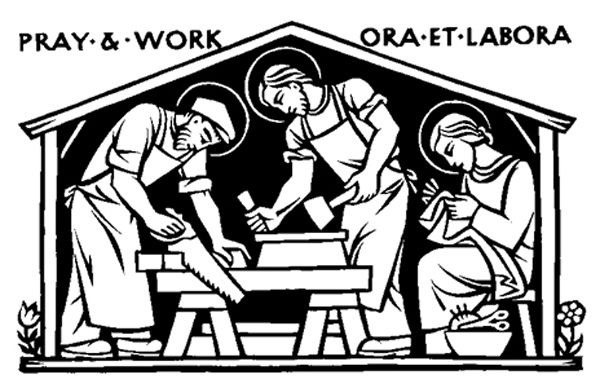Signs of the Times • 5 September 2019 • No. 201
¶ Processional. “Our great responsibility / To be guardians of our liberty / ‘Till tyrants bow to the people’s dream / And justice flows like a mighty stream.” —Jean Rohe, “National Anthem: Arise! Arise!”

Above: “Paul Kernaleguen says regenerative agriculture has brought bees back to his farm. ‘With the flowering species [of plants] we have now, you definitely see more,’ he said.
“He’s referring to the mixture of plants in his fields, near Birch Hills, Saskatoon. Along with his partner, Erin Dancey, he now grows flowers like red clover, phacelia and sunflowers, along with barley, oats and peas they grow to feed their dairy cattle.
“Regenerative agriculture, says Cover Crops Canada spokesperson Kevin Elmy, is designed to replenish ‘the biology in our soils. We’ve mined our soils and our soil is going in the wrong direction,’ he said.” —Nathaniel Dove, Global News (Thanks Loren.)
Special issue
WHITE SUPREMACY
Part 2
Introduction
This is the second installment of special attention to the scourge of white supremacy. (See part one in the 23 August 2019 issue of “Signs of the Times.”)
“In recent years it feels like we have been drenched with news of a plague most thought was laid to rest with the successes of the Civil Rights Movement: festering white supremacy and white nationalism. An explosion of violent extremism, both here in the US and abroad. Mass shootings rooted in racial animus. A president who stirs hostility to immigrants, spews race-laced tweets, and fosters friendships with some of the world’s worst dictators (and, now, claims divine authority for trade wars).” —continue reading “Preface to special issue on white supremacy”
§ § §
“Take up the White Man’s burden— / Send forth the best ye breed— /
Go bind your sons to exile / To serve your captives’ need; /
To wait in heavy harness / On fluttered folk and wild— /
Your new-caught, sullen peoples, / Half devil and half child. /
Take up the White Man’s burden— / the savage wars of peace— /
Go, make them with your living, / And mark them with your dead!”
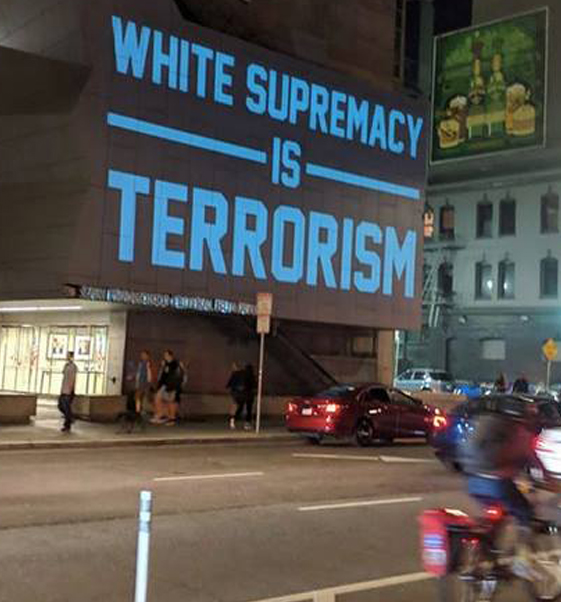 —Rudyard Kipling, excerpt from his poem, “The United States and the Philippine Islands,” written expressly to encourage US senators to support a military overthrow of the newly proclaimed Philippine Republic, 1899, following that country’s overthrow of Spanish rule. Then President William McKinley said he made the decision to occupy the Philippines after he “went down on my knees and prayed to Almighty God for light and guidance,” then resolved to “uplift and Christianize” the Filipinos (unaware that the nation was predominantly Catholic).
—Rudyard Kipling, excerpt from his poem, “The United States and the Philippine Islands,” written expressly to encourage US senators to support a military overthrow of the newly proclaimed Philippine Republic, 1899, following that country’s overthrow of Spanish rule. Then President William McKinley said he made the decision to occupy the Philippines after he “went down on my knees and prayed to Almighty God for light and guidance,” then resolved to “uplift and Christianize” the Filipinos (unaware that the nation was predominantly Catholic).
¶ “Ignorance of the past will not save us from its price.” —Timothy B. Tyson, author of “The Blood Emmett Till," in a recent interview with Will Jarvis, Chronicle of Higher Education
¶ As recently as yesterday’s headlines. “An email sent from the Justice Department to all immigration court employees this week included a link to an article posted on a white nationalist website that ‘directly attacks sitting immigration judges with racial and ethnically tinged slurs.’” —Hamed Aleaziz, BuzzFeed (Thanks Joanna.)
¶ “‘Complicity and amnesia’ are the twin sins of otherwise well-meaning white folks: benefiting from white supremacy while simultaneously ignoring or forgetting the same.” —Abigail Myers, quoting Katrina Browne, director of the documentary film “Traces of the Trade,” which unearths her New England ancestors’ role in establishing the slave trade
¶ “The architects of America’s ‘democracy’ shared the founders’ Anglo-Saxonist vision. Thomas Jefferson believed unapologetically in white superiority and black inferiority. Though he expressed a conviction that slavery was contrary to America’s ideals of freedom and democracy (while owning slaves himself), he maintained that the black enslaved were irrevocably inferior to white people. In an 1814 letter to his friend Edward Coles, an  abolitionist, Jefferson referred to black people as ‘pests in society’ and warned that their ‘amalgamation with the other colour produces a degradation to which no lover of his country, no lover of excellence in the human character can innocently consent.’” —Kelly Brown Douglas, New York Times
abolitionist, Jefferson referred to black people as ‘pests in society’ and warned that their ‘amalgamation with the other colour produces a degradation to which no lover of his country, no lover of excellence in the human character can innocently consent.’” —Kelly Brown Douglas, New York Times
¶ “The best that can happen to any people that has not already a high civilization of its own is to assimilate and profit by American or European ideas . . . of civilization and Christianity, . . . the prerequisite condition to the moral and material advance of the peoples who dwell in the darker corners of the earth.” —President Theodore Roosevelt, “Expansion of the White Races,” 1926
¶ “Ten years ago, the Department of Homeland Security sent American law enforcement agencies an intelligence briefing warning of a rising threat of domestic rightwing extremism, including white supremacist terrorism. . . .
“Republican politicians and conservative pundits reacted with outrage and demanded a retraction. . . . The head of the Department of Homeland Security (DHS) publicly apologized. The small team of domestic terrorism analysts who had produced the report was disbanded, and analysts were reassigned to study Muslim extremism, according to Daryl Johnson, the career federal intelligence analyst who had lead the team. By the next year, Johnson says, he had been forced out of DHS altogether.” —Lois Beckett, Guardian
¶ “(1) White supremacists account for nearly 3 out 4 murderous terrorist acts in this nation; (2) The number of white supremacist groups in America has jumped 30% in the last four years; (3) According to the most recent FBI data, the number of hate crimes in America has increased three years in a row, jumping about 17% in the one year alone. (4) Counties that hosted a Trump rally during his run for president in 2016 have subsequently experienced a 226% jump in hate crimes. (5) One of the first things the Trump administration did after being elected was to essentially eliminate a program focused on reducing white supremacist violent activity and  instead started the bullshit program that monitors the completely made-up threat of ‘Black Identity Extremists.’
instead started the bullshit program that monitors the completely made-up threat of ‘Black Identity Extremists.’
“When we refuse to speak this truth, we fuel white terrorism. We not only allow it to exist, we also allow it to thrive.” —Avis Jones-DeWeever, Yes magazine
Right: Photby Melissa Golden, The Guardian
¶ Good news. “Here at Sickside Tattoo Studio in Horn Lake, Mississippi, just south of the Tennessee border, reformed gang members and white supremacists travel from throughout the south-east US seeking free cover-ups [of their hateful tattoes]. The program is part of Garret’s Erase the Hate campaign, and Sickside is one of a few tattoo shops in the country that participates.” —Deborah Bloom, Guardian
¶ “How is it that we hear the loudest yelps for liberty among the drivers of negroes?" —Samuel Johnson, English writer, criticizing the 1774 “Declaration of Rights of the First Continental Congress of America,” which protested British taxation in the colonies without representation in the British parliament
¶ “In 1947, the country clerk in Los Angeles refused to marry Andrea Perez and Sylvester Davis. They were of different races, and a California law said that ‘all marriages of white persons with Negroes, Mongolians, members of the Malay race or mulattoes are illegal.’” It wasn’t until 1967 that the US Supreme Court struck down (on a 4-3 vote) such laws in 29 states. —Adam Liptak New York Times
¶ Important reading. The New York Times has undertaken what it calls “The 1619 Project”: The 1619 Project is a major initiative observing the 400th anniversary of the beginning of American slavery. It aims to reframe the country’s history, understanding 1619 as our true founding, and placing the consequences of slavery and the  contributions of black Americans at the very center of the story we tell ourselves about who we are.”
contributions of black Americans at the very center of the story we tell ourselves about who we are.”
¶ “While I appreciate the intent and effort of NY Time's new 1619 Project, I quibble with the topic sentence that begins the series: ‘The 1619 Project is a major initiative from The New York Times observing the 400th anniversary of the beginning of American slavery.’ Slavery came to America more than 100 years earlier, first with the enslavement of the native peoples in Cuba and other Caribbean islands in the late 15th century, and then with the introduction of African slaves to replace the rapidly diminishing indigenous labor force in the early 16th century. It's helpful to remember that the U.S. doesn't constitute the whole of "America." —Stan Dotson, Facebook
¶ “The nationalist not only does not disapprove of atrocities committed by his own side, but he has a remarkable capacity for not even hearing about them.” —George Orwell, "Notes on Nationalism"
¶ “The Justice Department suppressed a report showing that suspected white supremacists were responsible for all race-based domestic terror incidents last year. The report by New Jersey’s Office of Homeland Security Preparedness was distributed throughout DHS and to federal agencies like the FBI earlier this year before it was obtained by Yahoo News.” —Igor Derysh, Salon
¶ Good news you likely haven’t heard about. Redneck Revolt is an organization of working-call whites devoted to stand against White supremacy. In a November 2017 open letter “To Other Working Americans,” the group “put  out a call for its fellow working-class rural White people to ‘reject the idea of whiteness.’ That is, they wrote, ‘to reject the idea that our allegiance is somehow determined by what skin we have, even when our real living situations are so different.’”
out a call for its fellow working-class rural White people to ‘reject the idea of whiteness.’ That is, they wrote, ‘to reject the idea that our allegiance is somehow determined by what skin we have, even when our real living situations are so different.’”
“Getting more serious about that sort of work is Scalawag Magazine, which on Nov. 2 announced an in-depth reporting initiative on how Southerners are challenging White supremacy. In a recent New York Times article, Alysia Nicole Harris, the editor of Scalawag, said: ‘Ultimately, we believe that the South is going to be the voice that emerges to lead this conversation about trauma and healing, because here is where the trauma was the thickest.’” —Zenobia Jeffries Warfield, Yes! magazine
¶ “Sure, we used the prayer breakfasts and religious services and all that for political purposes. One of my jobs in the White House was to romance religious leaders. We would bring them into the White House and they would be dazzled by the aura of the Oval Office, and I found them to be about the most pliable of any of the special interest groups that we worked with.” —Charles Colson, former aide to President Richard Nixon
¶ “The North [in the US] failed to develop large-scale agrarian slavery, such as later arose in the Deep South, but that had little to do with morality and much to do with climate and economy.” —“Northern Profits From Slavery”
“The effects of the New England slave trade were momentous. It was one of the foundations of New England's economic structure; it created a wealthy class of slave-trading merchants, while the profits derived from this commerce stimulated cultural development and philanthropy. —Lorenzo Johnston Greene, "The Negro in Colonial New England, 1620-1776,"
¶ “Slavery's explosive growth, in charts: How '20 and odd' became millions. See how slavery grew in the U.S. over two centuries.” —USA Today (Thanks David.)
¶ “White people assume niceness is the answer to racial inequality. It's not.” —Robin diAngelo, Guardian
¶ From 2009-2018, 427 deaths were perpetrated by domestic terrorists. Of those, 73.3% were committed by 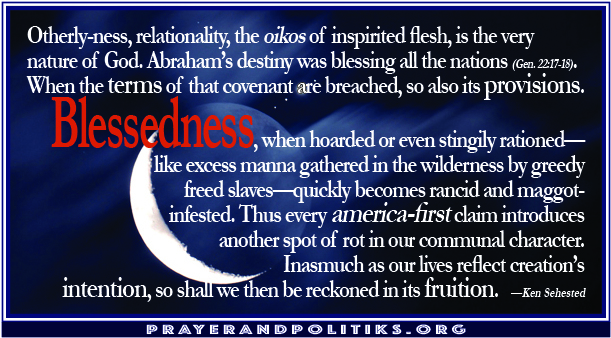 right-wing domestic extremists, 23% by Islamist extremists, and 3% by left-wing extremists. —Anti-defamation League Center on Extremism
right-wing domestic extremists, 23% by Islamist extremists, and 3% by left-wing extremists. —Anti-defamation League Center on Extremism
¶ “The Religious Hunger of the Radical Right.” “Domestic right-wing terrorists, like the man accused of the shooting last weekend in El Paso, are not so different from their radical Islamist counterparts across the globe — and not only in their tactics for spreading terror or in their internet-based recruiting. Indeed, it is impossible to understand America’s resurgence of reactionary extremism without understanding it as a fundamentally religious phenomenon.
“These aren’t just subcultures; they are churches. And until we recognize the religious hunger alongside the destructive hatred, we have little chance of stopping these terrorists.
“But what nearly all of these perpetrators shared was a cosmic-level worldview that fetishizes violence as a kind of purifying fire: a destruction necessary to ‘reset’ the world from its current broken state. . . .
“At the same time, these groups promise their members a sense of purpose within that chaotic world: a chance to participate in a cleansing fire. They are called to take up the mantle of warriors for the cause. . . .” —Tara Isabella Burton, New York Times
¶ “So this fall, when students return to school [in South Dakota], a new and compulsory message will greet them: ‘In God We Trust.’ It’ll be the first new academic year since SD’s GOP leadership passed a law requiring every public school to display the American maxim ‘in a prominent location’ and in a font no smaller than 12 by 12 inches.
“At least half a dozen [other states] passed ‘In God We Trust’ bills last year, and 10 more have introduced or passed the legislation so far in 2019.” —Reis Thebault, “A red state is plastering ‘In God We Trust’ on the walls of public schools. It’s mandatory,” Washington Post
¶ In 2019 alone, Fox News’ fearmongering about a migrant invasion prior to the El Paso massacre included:
• Over 70 on-air references to an invasion of migrants.
• At least 55 clips of Trump calling the surge of migrants an invasion.
• 24 references to an invasion on Fox & Friends, Fox & Friends First, and Fox & Friends Weekend, combined.
• 21 uses of invasion rhetoric by hosts Tucker Carlson, Brian Kilmeade and Laura Ingraham.” —Lisa Power, Media Matters

Above: “Brotherhood,” mural on US-Mexico border wall by Enrique Chiu
¶ As the Trump administration pushes forward with plans to build a border wall, American and Mexican artists are working to paint a mile-long mural on the border fence celebrating peace and unity. Mexican-born, American-educated artist Enrique Chiu is leading a bi-national effort to turn the fence into a work of art that spreads a message of hope to people who cross the border. —Lidija Grozadanic Inhabitat (See more photos. Thanks Jan.)
¶ “A coalition of Christian right groups . . . have organized a major legislative initiative called ‘Project Blitz.’ Its goal is to pass an outwardly diverse but internally cohesive package of Christian-right bills at the state level, whose cumulative impact would be immense.” —Paul Rosenberg, “Onward, Christian soldiers: Right-wing religious nationalists launch dramatic new power play,” Salon
¶ This series of other articles by Paul Rosenberg in Salon are insightful.
• “Under Trump, Christian nationalists are playing to win—and liberals are finally fighting back.”
• “Can progressives reclaim ‘religious freedom’ from Trump and the evangelical right?”
 • “The plot against America: Inside the Christian right plan to ‘remodel’ the nation.”
• “The plot against America: Inside the Christian right plan to ‘remodel’ the nation.”
¶ Let’s be clear about this: The Trump administration’s immigration policy of separating children from parents is, according to Amnesty International, “nothing short of torture.” And torture, always and everywhere, is a form of terrorism—whose purpose is not to kill but to frighten a larger population into compliance with ruling policy.
“Separating children [from parents] poses significant risk of traumatic psychological injury to the child,” said Commander Jonathan White of the U.S. Public Health Service in congressional hearings. He said neither he nor anyone he worked with “would ever have supported such a policy.” We know that 2,700 children were separated; but the Health and Human Services did not keep track of such separations prior to a federal judge halting the policy and ordering children to be reunited with parents.
¶ This article, focused on Trump senior advisor (and virulent anti-immigrant propagandist) Stephen Miller, provides an concise review of how the US got from Republican President Ronald Reagan’s welcome of immigrants in the ‘80s to President Trump’s vicious nativist policies.” —Jason DeParie, “How Stephen Miller Seized the Moment to Battle Immigration,” New York Times
¶ “CNN journalist Erin Burnett was asking [Ken] Cuccinelli [acting head of U.S. Citizenship and Immigration Services] about his earlier interview with NPR, in which he reworded the Emma Lazarus poem ‘The New Colossus,’ saying: ‘Give me your tired and your poor who can stand on their own two feet, and who will not become a public charge.’”
“‘Wretched,’ ‘poor,’ refuse’—right? That’s what the poem says America is supposed to stand for. So what do you think America stands for?’ Burnett asked Cuccinelli.
“‘Well, of course, that poem was referring back to people coming from Europe,’ Cucinelli answered.” —Sarah Ruiz-Grossman, HuffPost
¶ “Whether conceptualised intellectually as ‘The Great Replacement’, or ‘Whiteshift’, in books by right wing thinkers, or in a less articulate way on the internet as the fear of an invasion by Muslim refugees, or through the deployment of a more apocalyptic imaginary of white decline as in the manifesto of Christchurch’s white ethno-nati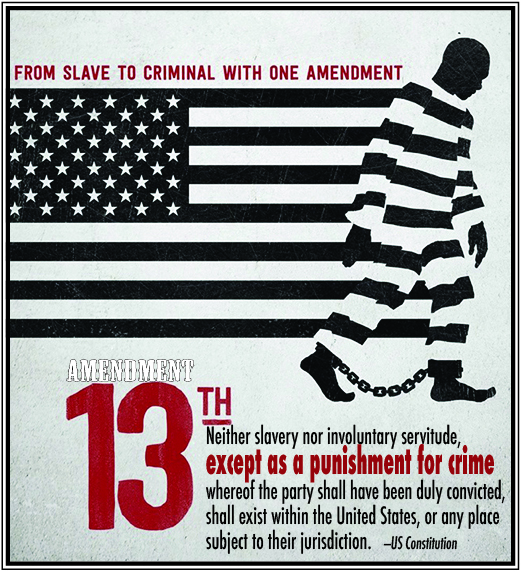 onalist mass murderer, there is an increasingly available literature portraying people of white European origins as being in a state of decline.” —Ghassan Hage, Guardian
onalist mass murderer, there is an increasingly available literature portraying people of white European origins as being in a state of decline.” —Ghassan Hage, Guardian
¶ Important viewing. The movie “13th” is a 2016 American documentary by director Ava DuVernay. The film explores the "intersection of race, justice, and mass incarceration in the United States;" it is titled after the Thirteenth Amendment to the United States Constitution, adopted in 1865, which formally abolished slavery but paved the way for perpetuating its practice by criminalizing behavior and enabling police to arrest poor freedmen and force them to work for the state under convict leasing. (1:36:07 YouTube video)
¶ Hopeful news. “Some 400,000 people have visited a memorial to the victims of racial-terror lynchings since it opened in Montgomery, Ala., about one year ago. People in 300 counties where lynchings took place have started conversations about erecting markers or monuments in their hometowns. Maryland’s General Assembly last month created the nation’s first truth and reconciliation commission on lynching.” —Fred Hiatt, Washington Post
¶ In “Stony the Road: Reconstruction, White Supremacy, and the Rise of Jim Crow,” Dr. Henry Louis Gates “recounts the massive, seemingly coordinated betrayal of black citizens following Redemption [the word used by Southerners to name the failure of Reconstruction] by every white institution. How the Supreme Court gutted civil rights protections. How the scientific community justified white supremacy with bogus research. How white churches ignored or blessed oppression. How the world of advertising adopted demeaning black stereotypes to sell soap and cereal. How the world of movies and literature popularized the myth of the Lost Cause, in which Reconstruction was a period of carpetbagger oppression and black people really longed for the security of the plantation.” —Michael Gerson, Washington Post
¶ If you have not seen Dr. Gates’ four-hour documentary, “Reconstruction: America After the Civil War,” it is available online for free. I daresay we cannot comprehend US history without understanding this period of history.
¶ “The greatest evil of American slavery was not involuntary servitude but rather the narrative of racial differences we created to legitimate slavery. Because we never dealt with that evil, I don’t think slavery ended in 1865, it just evolved" [into Jim Crow laws and mass incarceration]. —Bryan Stevenson, interviewed by Dean A. Strang, Progressive
¶ White nationalist terror attacks
• “The Southern Poverty Law Center reports a d ramatic increase in the number of white nationalist groups in the U.S., from 100 chapters in 2017 to 148 in 2018.
ramatic increase in the number of white nationalist groups in the U.S., from 100 chapters in 2017 to 148 in 2018.
• “The Anti-Defamation League reports a 182% increase in incidents of the distribution of white supremacist propaganda, and an increase in the number of rallies and demonstrations by white supremacy groups, from 76 in 2017 to 91 in 2018.
• “A study by the Center for Strategic and International Studies found the number of terrorist attacks by far-right perpetrators quadrupled in the U.S. between 2016 and 2017, and that far-right attacks in Europe rose 43% over the same period.” —Robert Farley, “The Facts on White Nationalism,” FactCheck.org
¶ “In order for us to survive the terrible days ahead of us, the country will have to turn and take me in its arms. Now, this may sound mystical, but at bottom that is what has got to happen. . . . The real problem is the price. Not the price I will pay, but the price the country will pay. The price a white woman, man, boy, and girl will have to pay in themselves before they look on me as another human being. This metamorphosis is what we are driving toward, because without that we will perish—indeed, we are almost perishing now.” —James Baldwin, “What Price Freedom?” 1964 essay in The Cross of Redemption: Uncollected Writings (Thanks Greg.)
¶ “A country is not a hotel, and it’s not full.” —world-renowned classical musician Yo-Yo Ma, during an April performance along the border of Laredo, Texas and Nuevo Laredo, Mexico
¶ “Nationalism is a religion and war is its liturgy.” —Stanley Hauerwas
¶ If there is to be had any possibility of white privilege becoming an ally to muted voices, of using such privilege to undermine its own dominance in the public realm, then this declaration of a high school valedictorian (son of dear friends) is the place to start. (8 minutes)
¶ “You named me big river, drew me—blue, / thick to divide, to say: spic and Yankee, / to say: wetback and gringo. You split me / in two—half of me us, the rest them. But / I wasn’t meant to drown children, hear / mothers’ cries, never meant to be your / geography: a line, a border, a murderer. . . . / Blood that runs in you is water / flowing in me, both life, the truth we / know we know: be one in one another.” —Richard Blanco, excerpt from “Complaint of El Río Grande”
 ¶ Recessional. “Let peace be waged with courage and devotion / With warrior’s brav’ry, vigilant and bold / Emancipation’s melodies surround us / Each voice in harmony, all tongues enfold / Let Grace untold tame fear’s unnerving sorrow / And sorrow’s verse, to joy’s refrain unfold.” —new lyrics to “This Is My Song" (aka "O God of all the nations" and "Finlandia"),” performed by Joan Baez
¶ Recessional. “Let peace be waged with courage and devotion / With warrior’s brav’ry, vigilant and bold / Emancipation’s melodies surround us / Each voice in harmony, all tongues enfold / Let Grace untold tame fear’s unnerving sorrow / And sorrow’s verse, to joy’s refrain unfold.” —new lyrics to “This Is My Song" (aka "O God of all the nations" and "Finlandia"),” performed by Joan Baez
# # #
©Ken Sehested @ prayerandpolitiks.org. Language not otherwise indicated above is that of the editor, as are those portions cited as “kls.” Don’t let the “copyright” notice keep you from circulating material you find here (and elsewhere in this site). Reprint permission is hereby granted in advance for noncommercial purposes.
Feel free to copy and post any original art on this site. (The ones with “prayerandpolitiks.org” at the bottom.) As well as other information you find helpful.
Your comments are always welcomed. If you have news, views, notes or quotes to add to the list above, please do. If you like what you read, pass this along to your friends. You can reach me directly at kensehested@prayerandpolitiks.org.
 § “The world is waiting for new saints, ecstatic men and women who are so deeply rooted in the love of God that they are free to imagine a new international order. . . . Most people despair that [it] is possible. They cling to old ways and prefer the security of their misery to the insecurity of their joy. But the few who dare to sing a new song of peace are the new St. Francises of our time, offering a glimpse of a new order that is being born out of the ruin of the old.” —Henri Nouwen
§ “The world is waiting for new saints, ecstatic men and women who are so deeply rooted in the love of God that they are free to imagine a new international order. . . . Most people despair that [it] is possible. They cling to old ways and prefer the security of their misery to the insecurity of their joy. But the few who dare to sing a new song of peace are the new St. Francises of our time, offering a glimpse of a new order that is being born out of the ruin of the old.” —Henri Nouwenand saints the courage to die for the future they envisaged. They make their own bodies the seed of their highest hope.” —Brazilian theologian Rubem Alves

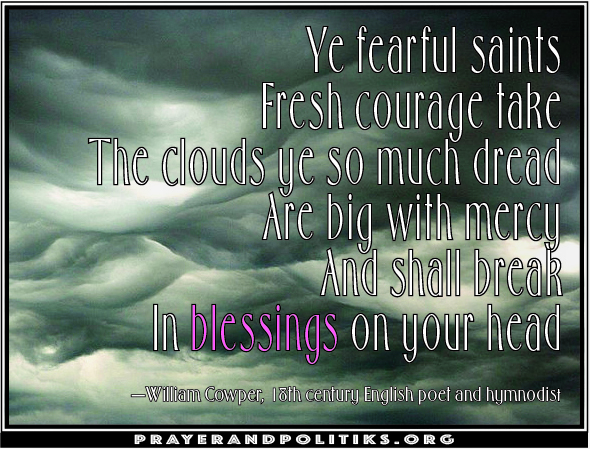
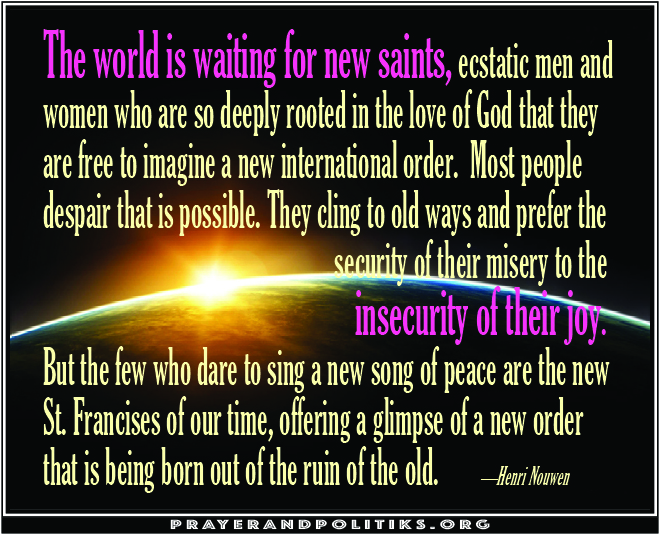 those joints which are needed for advancement—in a word, with more renunciation than you care for—and so you flee the contagion.” —Victor Hugo
those joints which are needed for advancement—in a word, with more renunciation than you care for—and so you flee the contagion.” —Victor Hugo


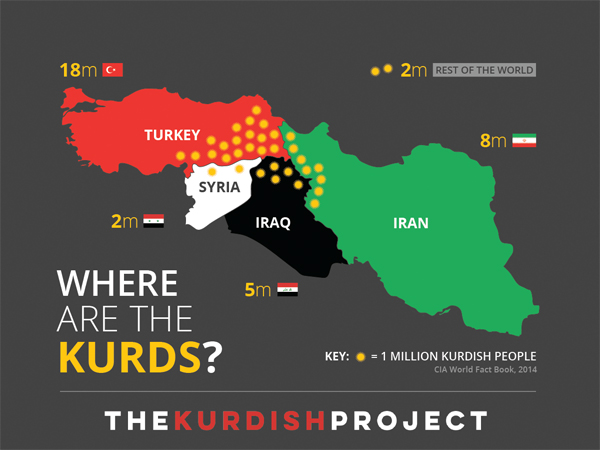 Treaty of Sèvres. But a later agreement instead divided them among Turkey, Iraq, Syria and Iran. They make up the fourth-largest ethnic group in the Middle East. —for more info see
Treaty of Sèvres. But a later agreement instead divided them among Turkey, Iraq, Syria and Iran. They make up the fourth-largest ethnic group in the Middle East. —for more info see  component of the Democratic Federation of North Syria’s “Syrian Democratice Forces.
component of the Democratic Federation of North Syria’s “Syrian Democratice Forces. odus 20:2—‘I am the Lord your God, who brought you out of the land of Egypt’—the sanctity of God and sanctuary for refugees are forever linked.” —Ken Sehested
odus 20:2—‘I am the Lord your God, who brought you out of the land of Egypt’—the sanctity of God and sanctuary for refugees are forever linked.” —Ken Sehested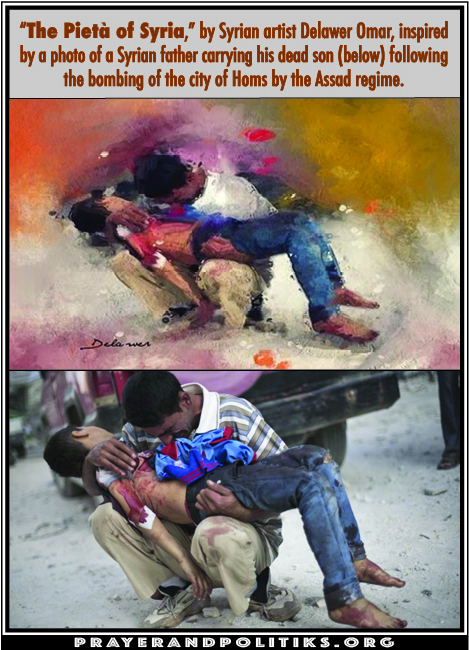
 ng for us in return.” —Dillon Burroughs
ng for us in return.” —Dillon Burroughs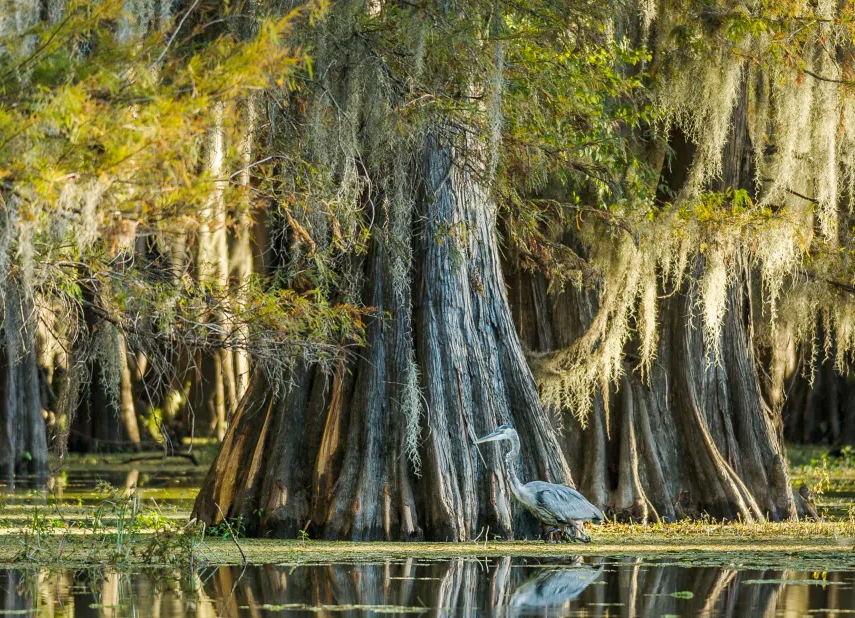 Carolina.
Carolina. Featured this week on prayer&politiks
Featured this week on prayer&politiks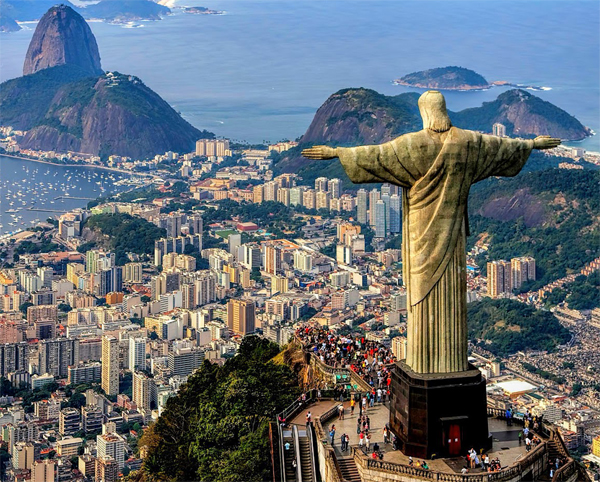 Redeemer” statue, for many years the tallest in the world.
Redeemer” statue, for many years the tallest in the world.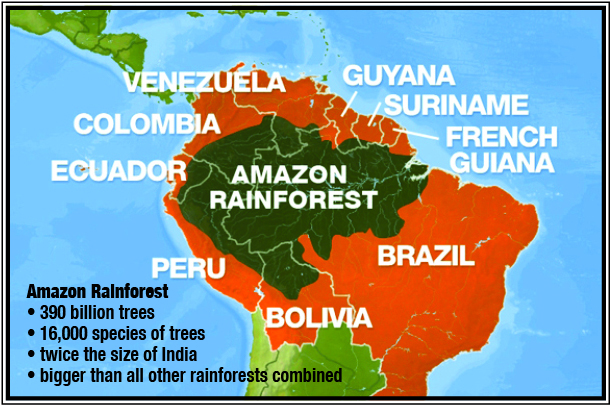 its metals, minerals, and gemstones. The quickest way to gain access is to torch it.
its metals, minerals, and gemstones. The quickest way to gain access is to torch it. Copacabana beaches. I didn’t know prior to my trip that more African slaves disembarked in Brazil than in any other country during the 16th-18th century Atlantic slave trade.
Copacabana beaches. I didn’t know prior to my trip that more African slaves disembarked in Brazil than in any other country during the 16th-18th century Atlantic slave trade.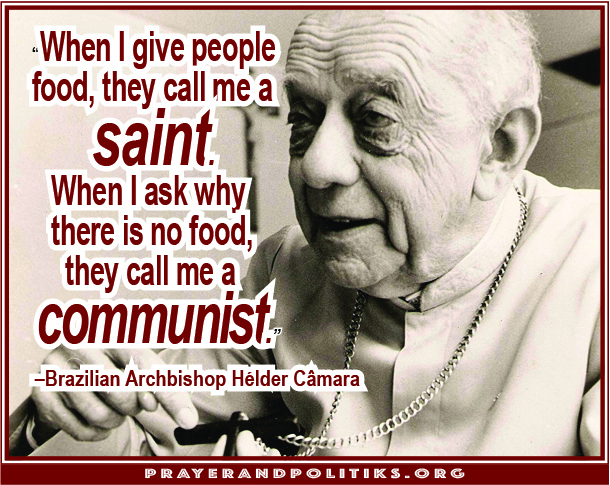 Brazil’s sizeable, deeply conservative evangelical Christian community.
Brazil’s sizeable, deeply conservative evangelical Christian community. threats, on and on—not world without end, for it will surely end if, by no other cause, choking to death on our own excretion.
threats, on and on—not world without end, for it will surely end if, by no other cause, choking to death on our own excretion.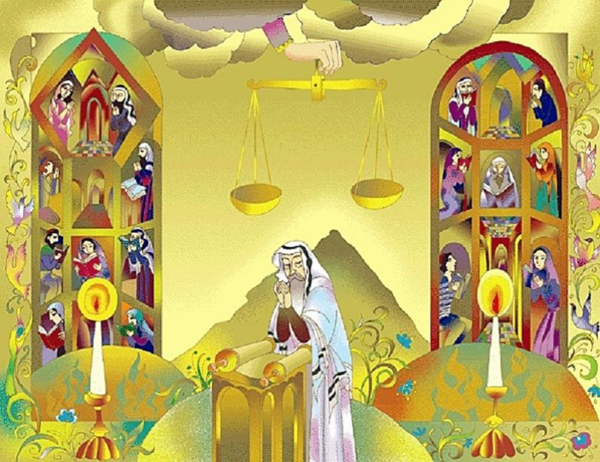 possibility of a new beginning that enables our turning around, embracing the strenuous labor of repairing broken relations and enacting just policies.
possibility of a new beginning that enables our turning around, embracing the strenuous labor of repairing broken relations and enacting just policies.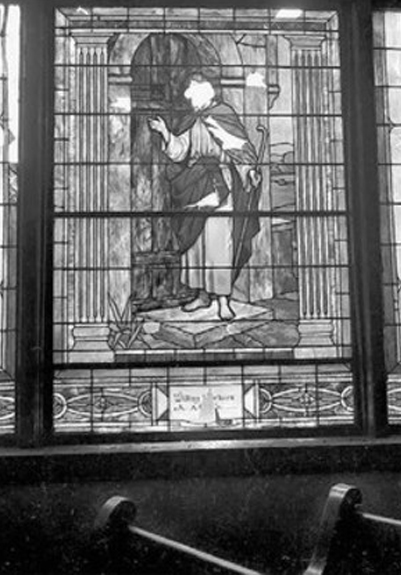 killing four young girls and traumatizing a city—Birmingham—nicknamed “Bombingham” for the sheer number of terrorist bombings it endured. The strike on 16th Street came less than three weeks after the soaring inspiration of Dr. King’s “I Have a Dream” speech at the 28 August March on Washington, where a quarter of a million people were ecstatically immersed in the vision and promise of the Dream for which that occasion is remembered.
killing four young girls and traumatizing a city—Birmingham—nicknamed “Bombingham” for the sheer number of terrorist bombings it endured. The strike on 16th Street came less than three weeks after the soaring inspiration of Dr. King’s “I Have a Dream” speech at the 28 August March on Washington, where a quarter of a million people were ecstatically immersed in the vision and promise of the Dream for which that occasion is remembered.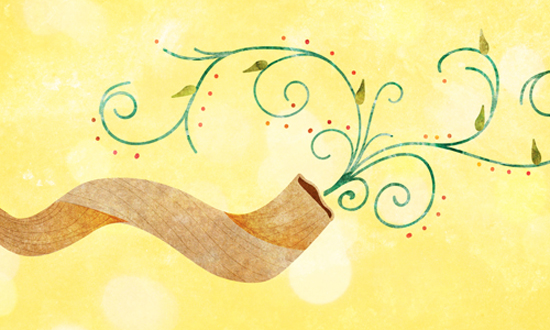 even get a public hearing, not to mention bringing a coherent, convincing case. To put it precisely, what is to be said about the option of penitential living constituting the rule of faith, that distinguishes its pursuit as a trustworthy alternative to what, from all appearance, is the inevitable reign of fear and its trembling wake? Mining the depths of the Jewish tradition’s understanding of Rosh Hashanah (the prospect of beginning anew) and Yom Kippur (penitence as the key to bounty and freedom) is an urgent undertaking.
even get a public hearing, not to mention bringing a coherent, convincing case. To put it precisely, what is to be said about the option of penitential living constituting the rule of faith, that distinguishes its pursuit as a trustworthy alternative to what, from all appearance, is the inevitable reign of fear and its trembling wake? Mining the depths of the Jewish tradition’s understanding of Rosh Hashanah (the prospect of beginning anew) and Yom Kippur (penitence as the key to bounty and freedom) is an urgent undertaking. the last, to conclude that religion is more or less a form of crowd control, with God as the ultimate godfather with, by extension, stately powers of all sorts serving as underbosses. That the latter are often in violent conflict with each other confirms, rather than questions, this conclusion.
the last, to conclude that religion is more or less a form of crowd control, with God as the ultimate godfather with, by extension, stately powers of all sorts serving as underbosses. That the latter are often in violent conflict with each other confirms, rather than questions, this conclusion. us punish and condemn ourselves or each other.
us punish and condemn ourselves or each other. by the hard work of repairing the damage done by our disordered desires.
by the hard work of repairing the damage done by our disordered desires.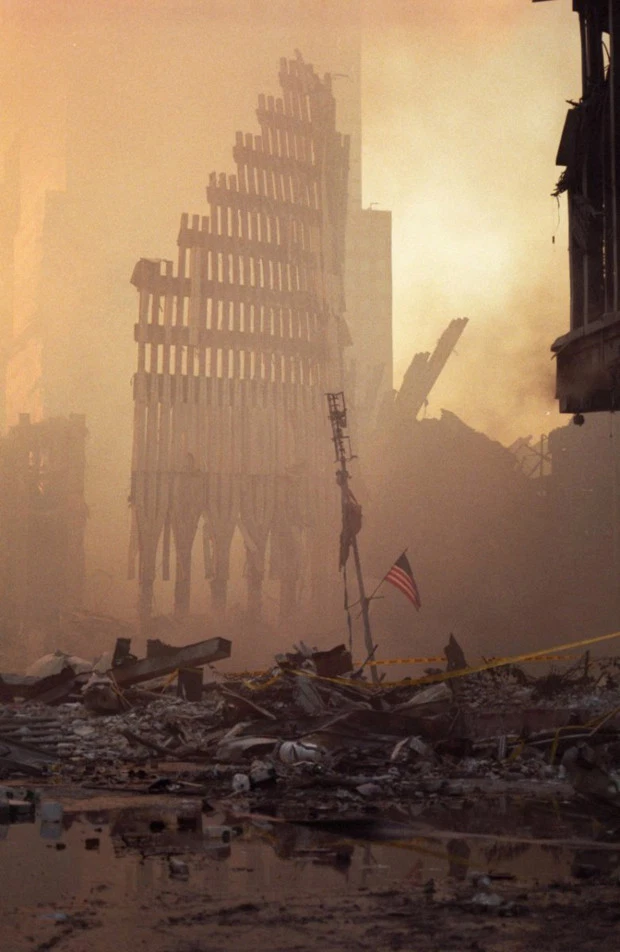 repeating it, over and again, to underscore that which is too terrible for words. Knowing that my first-born and my beloved sister-in-law lived less than a mile from Manhattan's southern shore made the shock all the more poignant.
repeating it, over and again, to underscore that which is too terrible for words. Knowing that my first-born and my beloved sister-in-law lived less than a mile from Manhattan's southern shore made the shock all the more poignant.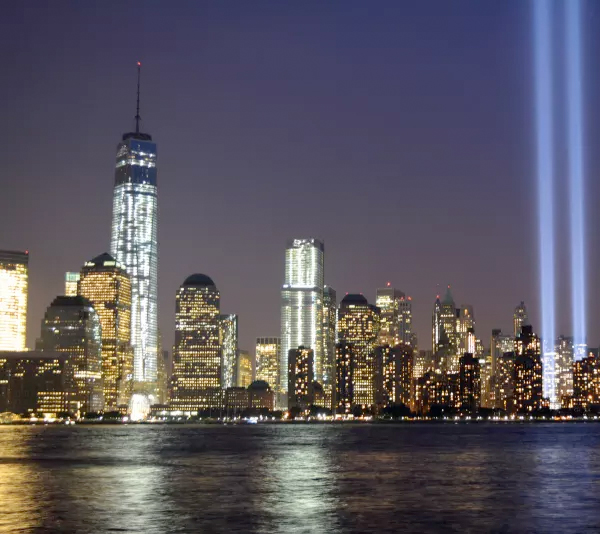 uncovering. While God is certainly not the author of this pain, there is the possibility that, out of the grief, an unveiling may occur; and we must prepare to ask and respond to the question, "What is God saying to us?"
uncovering. While God is certainly not the author of this pain, there is the possibility that, out of the grief, an unveiling may occur; and we must prepare to ask and respond to the question, "What is God saying to us?"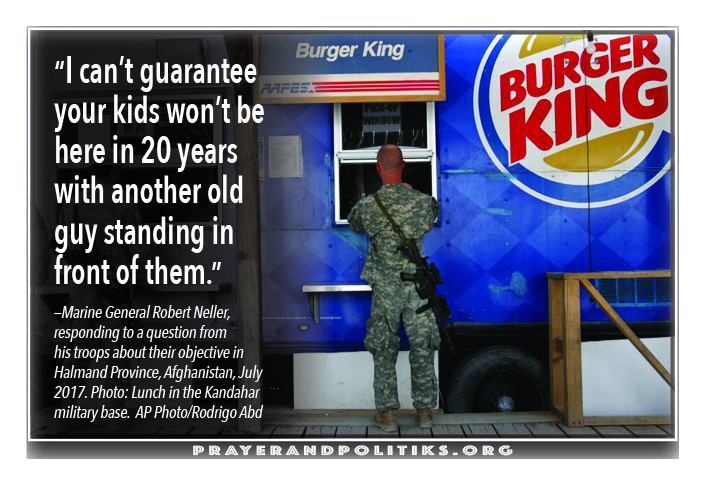 has since found a more lucrative offer on the "free market" of global political violence.
has since found a more lucrative offer on the "free market" of global political violence.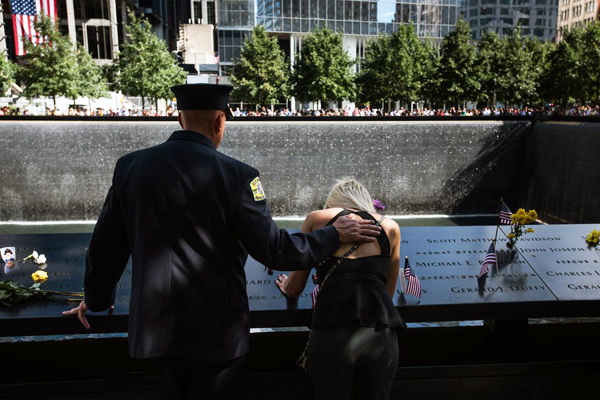 crops, livestock, even young people for sale as slaves. It was a conscious policy designed to effect Israel's submission to Aramean political, economic and military control, to make it a "client" state.
crops, livestock, even young people for sale as slaves. It was a conscious policy designed to effect Israel's submission to Aramean political, economic and military control, to make it a "client" state. chaos ensues, Elisha steps out of the house, calls to the commanding general, saying, "I hear you're looking for the Prophet Elisha?" "Yes," comes the stuttered response from a confused and frightened voice.
chaos ensues, Elisha steps out of the house, calls to the commanding general, saying, "I hear you're looking for the Prophet Elisha?" "Yes," comes the stuttered response from a confused and frightened voice.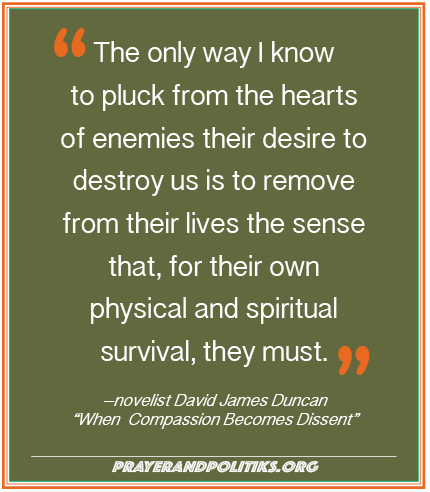 in heaven or on earth. Neither kings nor presidents, generals nor multinational magnates is able. And the narrator weeps at this admission.
in heaven or on earth. Neither kings nor presidents, generals nor multinational magnates is able. And the narrator weeps at this admission.
 —Rudyard Kipling, excerpt from his poem, “
—Rudyard Kipling, excerpt from his poem, “ abolitionist, Jefferson referred to black people as ‘pests in society’ and warned that their ‘amalgamation with the other colour produces a degradation to which no lover of his country, no lover of excellence in the human character can innocently consent.’” —
abolitionist, Jefferson referred to black people as ‘pests in society’ and warned that their ‘amalgamation with the other colour produces a degradation to which no lover of his country, no lover of excellence in the human character can innocently consent.’” — instead started the bullshit program that monitors the completely made-up threat of ‘Black Identity Extremists.’
instead started the bullshit program that monitors the completely made-up threat of ‘Black Identity Extremists.’ contributions of black Americans at the very center of the story we tell ourselves about who we are.”
contributions of black Americans at the very center of the story we tell ourselves about who we are.” out a call for its fellow working-class rural White people to ‘reject the idea of whiteness.’ That is, they wrote, ‘to reject the idea that our allegiance is somehow determined by what skin we have, even when our real living situations are so different.’”
out a call for its fellow working-class rural White people to ‘reject the idea of whiteness.’ That is, they wrote, ‘to reject the idea that our allegiance is somehow determined by what skin we have, even when our real living situations are so different.’” right-wing domestic extremists, 23% by Islamist extremists, and 3% by left-wing extremists. —
right-wing domestic extremists, 23% by Islamist extremists, and 3% by left-wing extremists. —
 • “
• “ onalist mass murderer, there is an increasingly available literature portraying people of white European origins as being in a state of decline.” —
onalist mass murderer, there is an increasingly available literature portraying people of white European origins as being in a state of decline.” — ramatic increase in the number of white nationalist groups in the U.S., from 100 chapters in 2017 to 148 in 2018.
ramatic increase in the number of white nationalist groups in the U.S., from 100 chapters in 2017 to 148 in 2018. ¶ Recessional. “Let peace be waged with courage and devotion / With warrior’s brav’ry, vigilant and bold / Emancipation’s melodies surround us / Each voice in harmony, all tongues enfold / Let Grace untold tame fear’s unnerving sorrow / And sorrow’s verse, to joy’s refrain unfold.” —
¶ Recessional. “Let peace be waged with courage and devotion / With warrior’s brav’ry, vigilant and bold / Emancipation’s melodies surround us / Each voice in harmony, all tongues enfold / Let Grace untold tame fear’s unnerving sorrow / And sorrow’s verse, to joy’s refrain unfold.” —